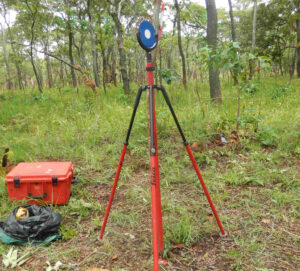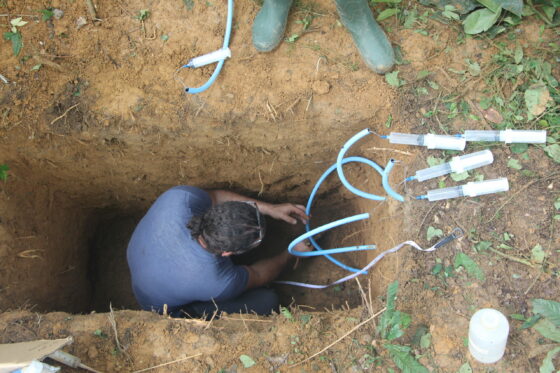The International Joint Laboratories (LMI) are one of the main tools deployed by the IRD to catalyze the North-South partnership activity of French Joint Research Units. As part of a medium-long term deployment strategy (up to 10 years), the LMIs provide a solid base for strengthening research, training and societal transfer activities.
The objective of the LMI DYCOFAC is to study the functioning of the critical zone and water resources in Central Africa. It will be a question of bringing elements of answers on the links, whether they are forcings or responses, existing between the evolution of the climate, the dynamics of the vegetation and the determinants of the biogeochemical cycles. These links are complex, poorly understood and poorly quantified in Central Africa. They will be approached at different spatial scales (from the plot to the large river basin) and time scales (from the second to several hundred thousand years).
The implementation of this LMI is built around a multidisciplinary approach. This original approach will bring together communities of modellers (climate, weathering, water transfers, vegetation), geochemists and hydrologists (acquisition of time series of concentration and flux data allowing the reconstruction of element fluxes , interaction processes at the water-soil-rock-plant-atmosphere interfaces) as well as ecologists (vegetation dynamics, biomass).
In terms of structuring research and strengthening scientific capacities in Central Africa, the IRD and its partners have previously and sustainably invested (mainly in Cameroon and Gabon) in:

- Strengthening of activities with National Observation Services “Tropical Experimental Watersheds” BVET (upstream Nyong basin) and HYBAM (Congo River basin)
- The establishment of a network of permanent forest plots (about a hundred distributed in Cameroon and Gabon), for the monitoring of forest dynamics, the evaluation of the gradients of plant diversity and carbon (very largely financed by external projects ),
- The feasibility study and the first investigations for the establishment of new environmental observatories in Cameroon (urban and peri-urban basins of Douala and Yaoundé, Sanaga basin undergoing hydraulic development) and in Gabon (river basin changing Ogooué, where IRD and its partner TNC are also involved in vegetation mapping),
- Capacity building within the framework of regional masters (Integrated Management of Coastal and Marine Ecosystems -Cameroon, Gabon-, and Masters in Water Resources and Environmental Risks in African Metropolises MAREMA, ERASMUS EU).

